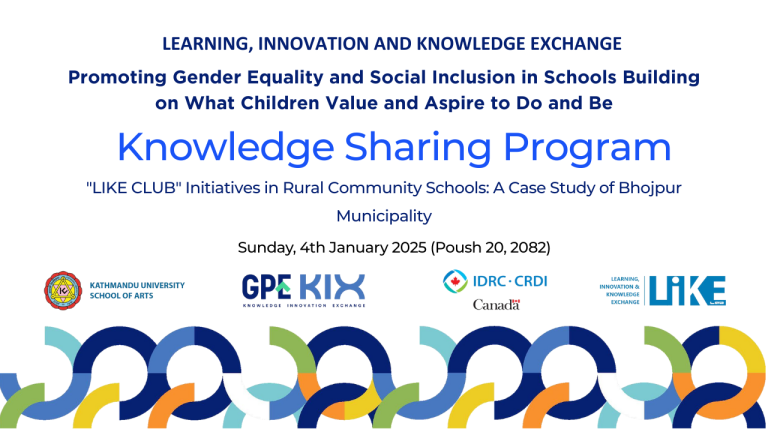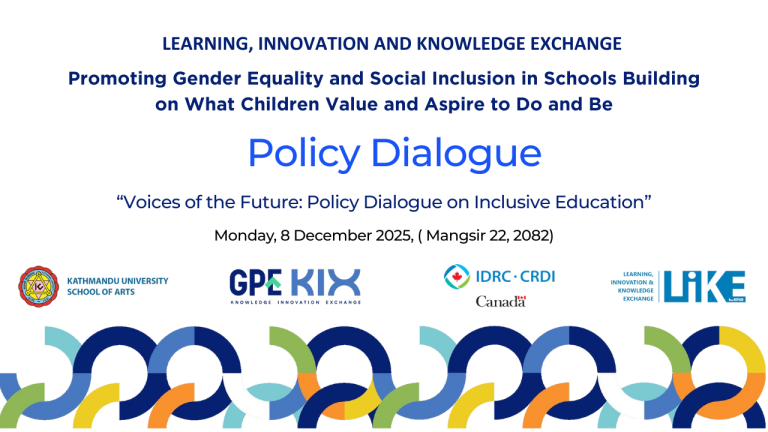LALITPUR, NEPAL, November 22, 2024 – The Learning, Innovation, and Knowledge Exchange (LIKE) Lab under the Kathmandu University School of Arts, in collaboration with the Continuing and Professional Education Centre (CPEC) under the Kathmandu University School of Education, hosted a knowledge exchange program focused on “Gender Equality and Social Inclusion Policy in Nepal.” This dynamic event brought together educators, practitioners, and students to engage in meaningful discussions on gender equality and social inclusion (GESI) in Nepal.
The program began with an engaging talk by Chanda Sunar, GESI Advisor and Practitioner, on the Gender Equality and Social Inclusion Policy Brief (GESI Strategy Paper 2021–2023). Sunar highlighted the critical aspects of the strategy paper, including provisions and policies related to special needs, inclusion, and disabilities. Her address included the Barriers for GESI Mainstreaming and the Provincial and Local Governance Support Programme (PLGSP). The session transitioned into a knowledge exchange panel on GESI Policy in Practice: Learnings, Challenges, Issues, and a Way Forward. Key themes explored during the panel included:
- Gender Equality, Inclusion, and Practice in Educational Institutions: The panelists emphasized the role of schools and universities in fostering inclusive environments. They discussed the need for gender-sensitive policies and practices to address the structural inequalities faced by marginalized groups.
- Gender-Responsive Teaching and Learning Practices: Highlighting its importance in Nepal, the speakers stressed the transformative potential of gender-responsive pedagogy to challenge traditional norms and empower students.
- Gender Equality and Inclusion in Medical Education: The discussion illuminated the challenges in promoting inclusion within medical education, where gender and social biases continue to affect opportunities and representation.
- Understanding Intersectionality: Panelists articulated the importance of addressing intersecting forms of discrimination, such as those based on caste, ethnicity, disability, and gender identity, to achieve true equality.
- Inclusion Beyond the Binary: A critical reflection on the need to broaden the scope of inclusion policies to support non-binary individuals and those from the LGBTIQ+ community, ensuring their representation and rights in academic institutions and society at large.
- Policy Gaps in Gender Equality and Inclusion in Nepal: The discussion highlighted the disconnect between policy frameworks and their implementation, citing the need for strategic monitoring mechanisms and increased accountability.
The program concluded with a discussion on the way forward in achieving gender equality and inclusion.



